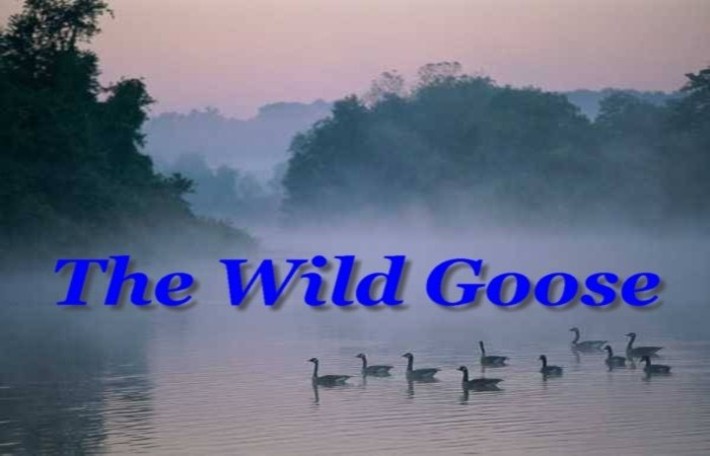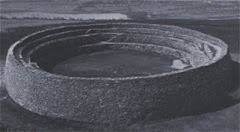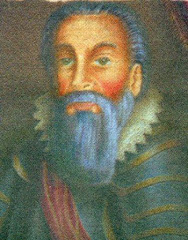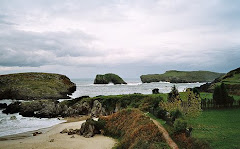
Sunday, 20 April 2008
400 Years of Exile

Being the 400th anniversary of the Flight of the Earls, there have been many events commemorating the departure of the Chieftains. I have had the chance to attend some of them, and I must praise the good job their organisers have done. Going further back, it is sad to see how the real background of the historical events have been forgotten. The Celtic spirit of the living clans, ruled by the ancient Gaelic order and later destroyed by imperial colonisation, is not dead. It lives on in many people today, in Ireland and also abroad, in the many places with an Irish diaspora.
But we also face a lot of modern enemies, and one of the most dangerous is ignorance. Regarding what is currently happening to the Hill of Tara and the surrounding area, one could even think that our glorious past of Druids and wisdom, Kings and heroism, people and culture is attacked by forces who do not just aim to forget the past, but to destroy all remaining evidence of it.
Maybe there are also people who do not want to remember that The North was once part of the country as well. In my view it still is, and will be united with the other 26 counties in the future, as every other nation in the world that was split by historical events was eventually united again.
Being personally concerned, I should feel honoured by the fact that the recent commemorations focused very much on Hugh O'Neill. The O'Donnels were very often mentioned and the Maguires more often forgotten, but it is important to remember that they all worked and fought together for the same aim.
The vicissitudes they went through could even seem to be exaggerated if it had been a fictional work of literature. But more than the Chieftains themselves it is the whole group, each one of those ninety-nine who departed, who should be remembered equally, including their women and children.
Knowing the destiny of some of their descendants as well, I can't avoid mentioning that while the British Crown continues having the biggest fortune on Earth, the children of the Irish Chieftains - and even they themselves - had to learn the hard way to live with dignity and going through dire straits. The same destiny, or even a harder one, was suffered by the Irish folks who stayed behind. I am happy that this has changed nowadays. It really was about time.
Having seen the exhibition that commemorated the way of the Earls through Switzerland, I somehow felt their call. It was a kind of certain genetical memory of the whole historical period, and being deeply moved, I wrote the poem you find below. Despite being who I am, English is not my mother tongue and it was not an attempt to create a good piece of literature. I just needed to express what I was feeling.
Knowing only too well what leaving home means, it has always been very moving for me to learn about the many Irish people (not only the Earls) who had to leave their wonderful country. I want to dedicate this poem to all those who had to leave the Emerald Isle and never returned.
The Flight of the Earls
It is moving all my senses
From beyond their voices call
It is feeling all their feelings
Their special way to show
It is moving all my senses
From beyond their voices call
It is feeling all their feelings
Their special way to show
For I feel for them their losses
Their fears, their pain, their shame.
Their fears, their pain, their shame.
Yet the hardest of it all
Was the dignity, their burden
Was the dignity, their burden
Showing strength though falling apart,
Showing strength
To take each other’s part
But when lying in the darkness,
Burning tears they always felt
Rolling down their noble temples,
Burning like the magma burns
They had already been weeping
Before leaving, all of them
Missing all green springs, green meadows,
Kindness, loveliness and songs
Showing strength
To take each other’s part
But when lying in the darkness,
Burning tears they always felt
Rolling down their noble temples,
Burning like the magma burns
They had already been weeping
Before leaving, all of them
Missing all green springs, green meadows,
Kindness, loveliness and songs
They had already been missing
Salty air and cliffs and friends,
Freshness of the humid forests,
All the beauty of the lakes
Yet the feelings grew stronger
On their way with no return
All the stones of their castles
Cried with bitterness the day
When the flock took off from Kinsale,
When their noble people left.
He had dammed himself for kneeling.
How he felt the shame again!
There it bit him deep and deeper,
There his soul felt too much pain.
Oh the winter is long over
And the spring has come again
But in Rome the hope was over
And the flock had lost its way
Now the North has changed the leaders
And their children live away
They all carry their burden
How I wish they could return.
Sunday, 6 April 2008
Celtic Days

In darkened days, long swallowed
by the ever hungry jaws of time,
the ancestors of our clans
fought endless wars and battles
with enemies of our faith and clime.
They won, and lost, and won again
in everlasting struggle for the truth,
and for the rights and lives of people,
entrusted to their care, from seasoned
warriors to the flowers of their youth.
For centuries the thunders rolled
across the island and her fields and hills,
the shades of green and brownish rocks
were often stained with bright red spots
of blood a fighting army always spills.
And then Peace ruled again, with joy,
with poems, music, songs and dances,
with lavish feasts and drinking wine,
while mighty fires burned above the glade
all night for happy people's glances.
They plowed fields and milked their cows,
each day to serve their Gods and Masters;
worked and played, and loved and laughed;
they fought and died, when asked to do,
and overcame their famines and disasters.
Those days of Celtic strive and bliss
have long now gone to where we all will go,
but still their memories keep living on
in hearts and minds, in lore and stories
that we tell when open winter fires glow.
They give us spirit to survive with honour,
to make ends meet without too many frowns,
fight swordless battles of the modern times
and win the plastic trophies now on offer
in place of silver rings and golden crowns.
Where once the groves of oak and ash
stood proudly, to honour Gods and give
great pleasure to the Druids' hearts,
a motorway leads to industrial estates,
telling a tale of loss, but lets us live.
Few people now are sure where they are
going and what life has for them to bear,
but Celtic souls are souls of heroes
who love and fight, and drink and play,
and will survive the shame and snare
laid out by heartless foreign hunters,
employed by faceless men of greed.
The ancestors might long be dead now,
but we still live, to honour Nature,
to fight the darkness, and - succeed.
By Francis de Roëlman
By Francis de Roëlman
Subscribe to:
Comments (Atom)






















